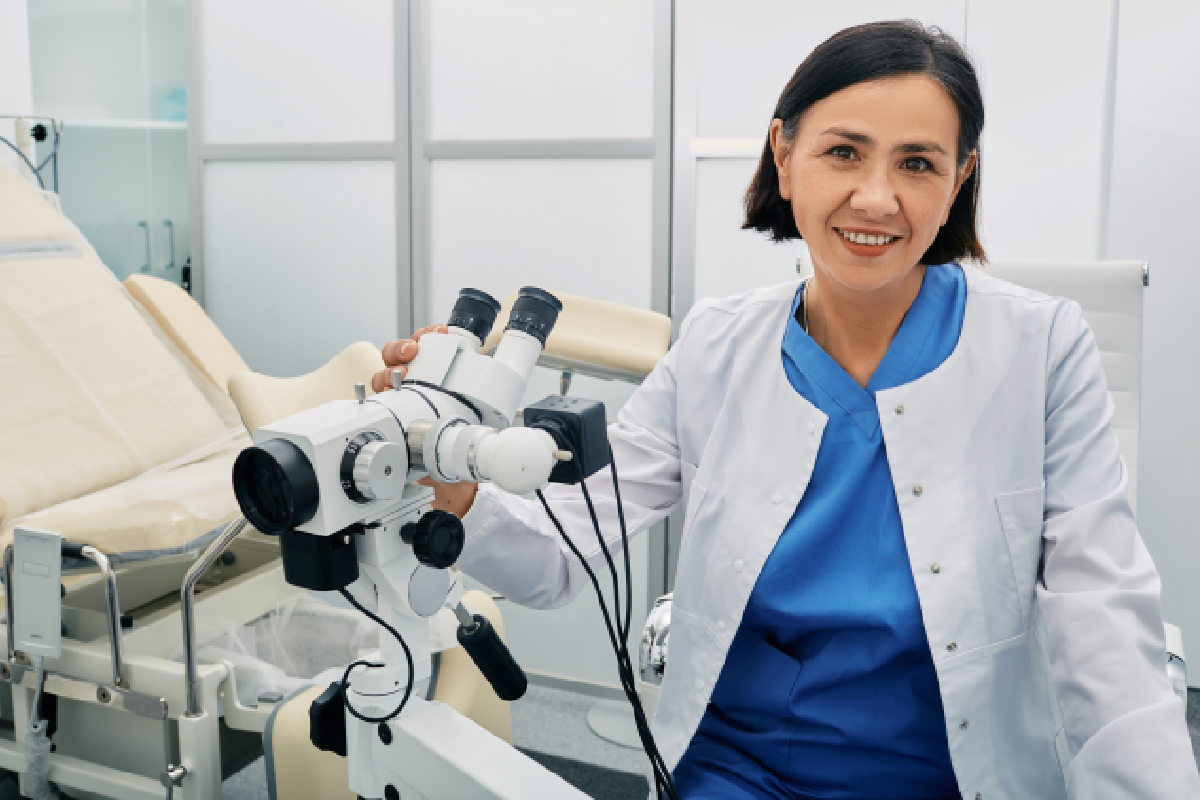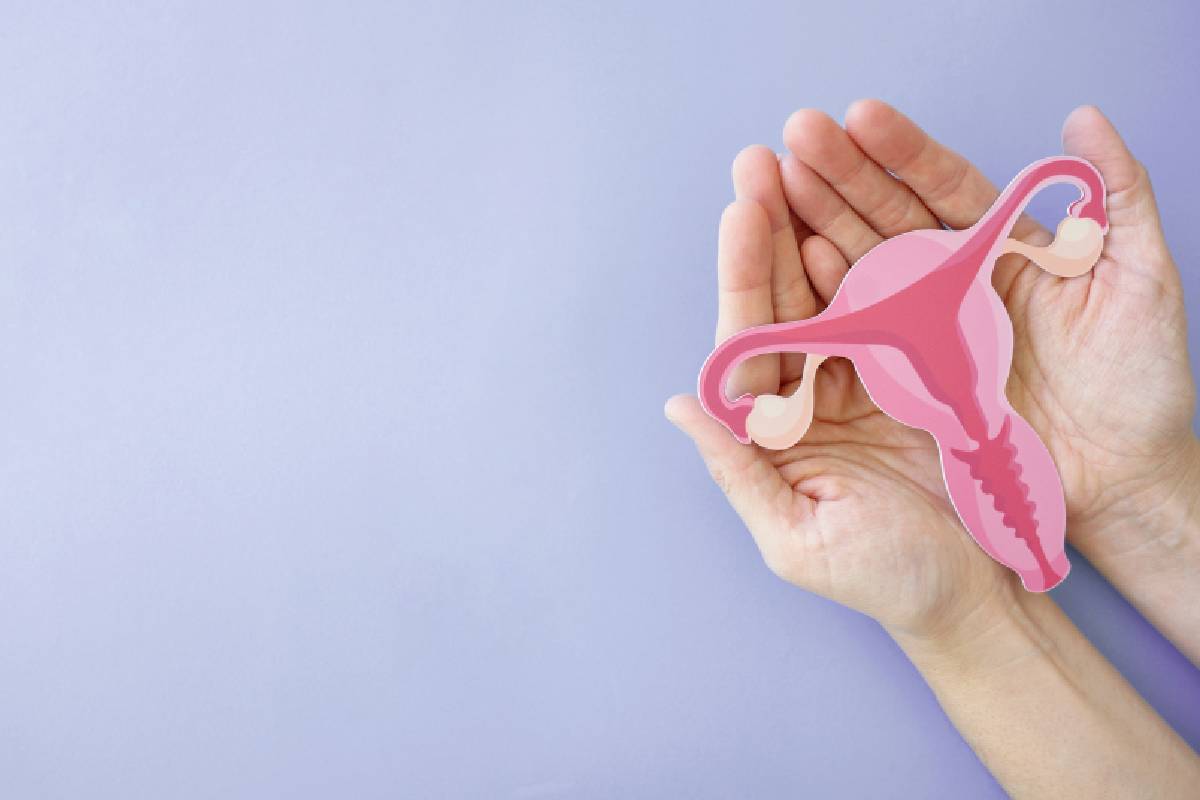
By: A Woman’s Place in Naples, FL
A colposcopy is a common follow-up procedure after an abnormal Pap smear. But what exactly does it involve, and should you be concerned? In this blog from A Woman’s Place in Naples, FL, we’ll explain what a colposcopy is, why it might be recommended, and what you can expect before, during, and after the procedure. If you’ve been told you need a colposcopy, you’re not alone—and it’s important to be informed and prepared.
What Is a Colposcopy?
A colposcopy is a diagnostic procedure that allows your OB/GYN to closely examine the cervix, vagina, and vulva using a special magnifying instrument called a colposcope. Unlike a Pap smear, which collects cells for testing, a colposcopy provides a detailed view of the tissues to detect abnormalities.
How It Works
The colposcope stays outside the body while your provider uses a speculum to gently open the vaginal walls, similar to a Pap smear. A mild vinegar-like solution may be applied to the cervix to highlight abnormal cells. If any suspicious areas are seen, your provider may take a biopsy—a small tissue sample—for further evaluation.
Why Is a Colposcopy Performed?
Colposcopy is typically recommended when:
- Your Pap smear results are abnormal (such as showing atypical or precancerous cells)
- You tested positive for high-risk HPV strains
- There are visible changes to the cervix or genital area during a routine pelvic exam
- You have unexplained bleeding after intercourse or between periods
It’s an important step in identifying cervical dysplasia (precancerous changes) or ruling out cervical cancer.
What to Expect During the Procedure
- Before: You don’t need anesthesia. Avoid intercourse, vaginal medications, or douching 24–48 hours beforehand.
- During: You’ll lie on an exam table as during a Pap smear. The provider inserts a speculum and uses the colposcope to inspect the area. Mild cramping may occur if a biopsy is taken.
- After: If no biopsy is done, you can resume normal activities right away. If a biopsy is taken, you may experience light spotting and mild discomfort for a few days.
Is a Colposcopy Painful?
Most people report only mild discomfort. The vinegar solution may cause a stinging sensation, and biopsies can feel like a quick pinch or cramp. Your provider will guide you through it and answer any questions during the procedure.
When Will I Get Results?
Biopsy results typically take about 1–2 weeks. Your provider will contact you to discuss next steps based on the findings, which may include monitoring, repeat testing, or treatment if abnormal cells are confirmed.
When Should You Call Your Doctor?
Contact your provider if you experience:
- Heavy bleeding (more than a period)
- Severe abdominal pain
- Fever or foul-smelling discharge
These could be signs of infection or a rare complication.
Take Charge of Your Cervical Health
If you’ve been told you need a colposcopy, don’t panic. It’s a proactive step toward protecting your reproductive health. At A Woman’s Place in Naples, FL, our experienced providers ensure your comfort and peace of mind throughout the process. If you have questions or need to schedule a colposcopy, contact us today: https://www.awpnaples.com/contact/
Further Reading
cancer.gov: Understanding Cervical Changes
By: A Woman’s Place in Naples, FL
A colposcopy is a common follow-up procedure after an abnormal Pap smear. But what exactly does it involve, and should you be concerned? In this blog from A Woman’s Place in Naples, FL, we’ll explain what a colposcopy is, why it might be recommended, and what you can expect before, during, and after the procedure. If you’ve been told you need a colposcopy, you’re not alone—and it’s important to be informed and prepared.
What Is a Colposcopy?
A colposcopy is a diagnostic procedure that allows your OB/GYN to closely examine the cervix, vagina, and vulva using a special magnifying instrument called a colposcope. Unlike a Pap smear, which collects cells for testing, a colposcopy provides a detailed view of the tissues to detect abnormalities.
How It Works
The colposcope stays outside the body while your provider uses a speculum to gently open the vaginal walls, similar to a Pap smear. A mild vinegar-like solution may be applied to the cervix to highlight abnormal cells. If any suspicious areas are seen, your provider may take a biopsy—a small tissue sample—for further evaluation.
Why Is a Colposcopy Performed?
Colposcopy is typically recommended when:
- Your Pap smear results are abnormal (such as showing atypical or precancerous cells)
- You tested positive for high-risk HPV strains
- There are visible changes to the cervix or genital area during a routine pelvic exam
- You have unexplained bleeding after intercourse or between periods
It’s an important step in identifying cervical dysplasia (precancerous changes) or ruling out cervical cancer.
What to Expect During the Procedure
- Before: You don’t need anesthesia. Avoid intercourse, vaginal medications, or douching 24–48 hours beforehand.
- During: You’ll lie on an exam table as during a Pap smear. The provider inserts a speculum and uses the colposcope to inspect the area. Mild cramping may occur if a biopsy is taken.
- After: If no biopsy is done, you can resume normal activities right away. If a biopsy is taken, you may experience light spotting and mild discomfort for a few days.
Is a Colposcopy Painful?
Most people report only mild discomfort. The vinegar solution may cause a stinging sensation, and biopsies can feel like a quick pinch or cramp. Your provider will guide you through it and answer any questions during the procedure.
When Will I Get Results?
Biopsy results typically take about 1–2 weeks. Your provider will contact you to discuss next steps based on the findings, which may include monitoring, repeat testing, or treatment if abnormal cells are confirmed.
When Should You Call Your Doctor?
Contact your provider if you experience:
- Heavy bleeding (more than a period)
- Severe abdominal pain
- Fever or foul-smelling discharge
These could be signs of infection or a rare complication.
Take Charge of Your Cervical Health
If you’ve been told you need a colposcopy, don’t panic. It’s a proactive step toward protecting your reproductive health. At A Woman’s Place in Naples, FL, our experienced providers ensure your comfort and peace of mind throughout the process. If you have questions or need to schedule a colposcopy, contact us today: https://www.awpnaples.com/contact/
Further Reading
cancer.gov: Understanding Cervical Changes










